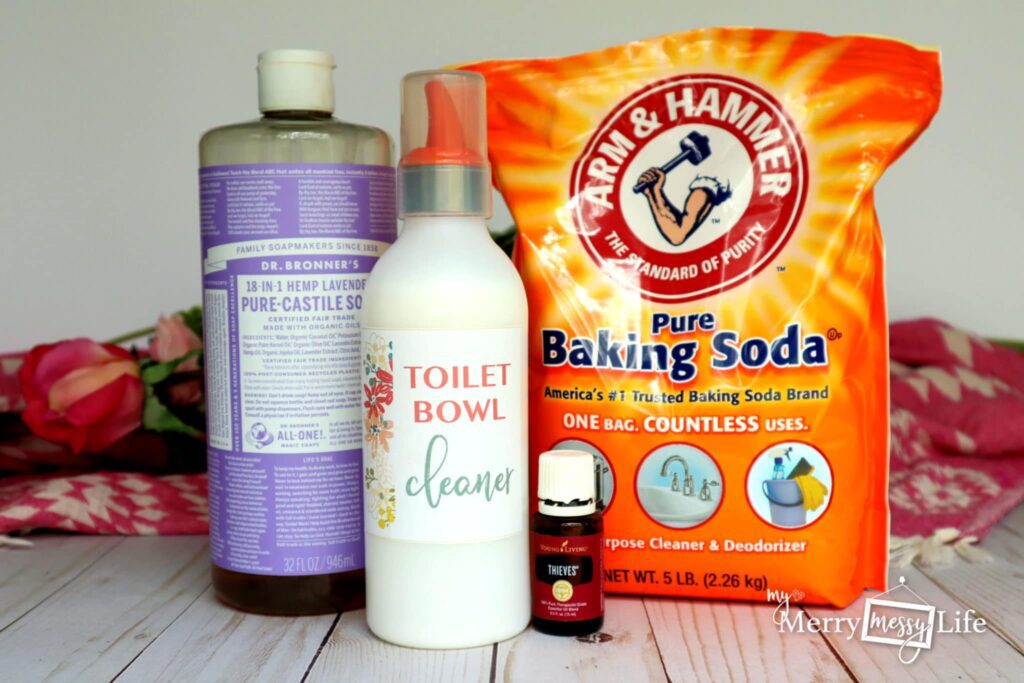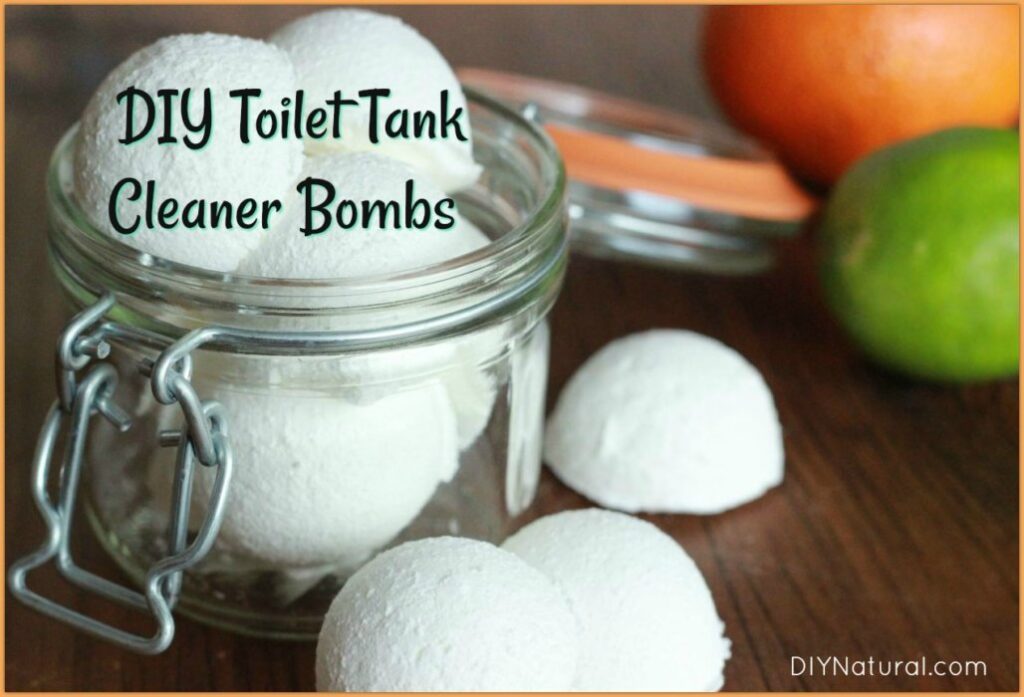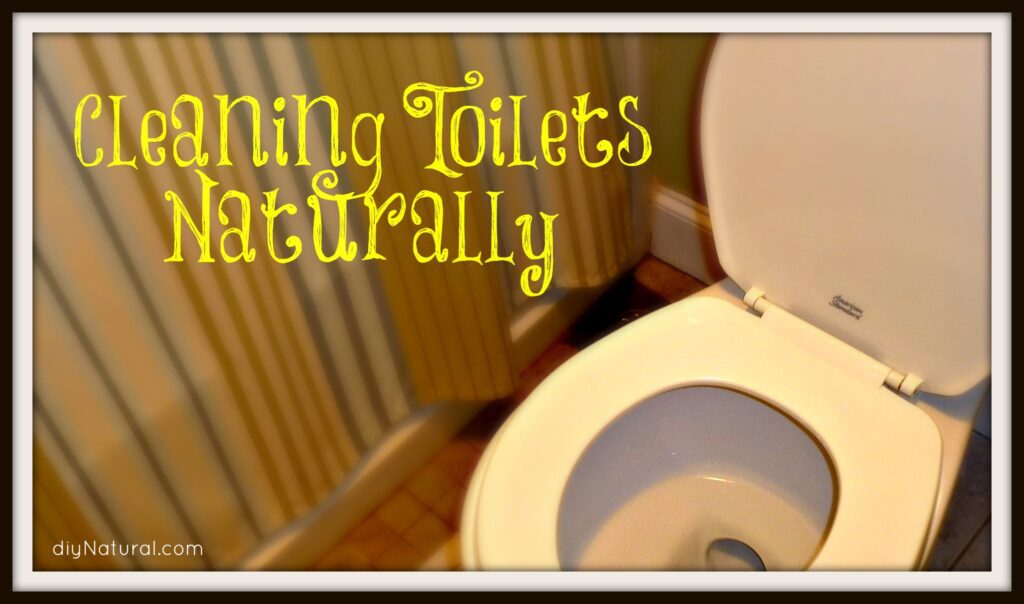Are you tired of using harsh chemical cleaners that can harm your septic tank and the environment? Look no further! In this article, we will explore homemade toilet cleaner recipes that are not only safe for your septic tank but also effective in keeping your toilet sparkling clean. Say goodbye to toxic cleaners and hello to a natural, eco-friendly way of cleaning your bathroom. So, let’s get started and discover the power of homemade toilet cleaners for septic tanks!
Benefits of Homemade Toilet Cleaner for Septic Tanks
Environmentally friendly
Using homemade toilet cleaner for septic tanks offers several benefits, starting with its positive impact on the environment. Unlike commercial cleaners, which often contain harmful chemicals that can leach into the soil and water systems, homemade toilet cleaners are made from natural ingredients that are safe for the environment. By choosing to use homemade cleaners, you’re reducing your carbon footprint and playing a part in preserving our planet.
Cost-effective
Another advantage of homemade toilet cleaner for septic tanks is its cost-effectiveness. Commercial cleaners can be expensive, especially if you need to use them frequently. On the other hand, the ingredients for homemade cleaners are often readily available in your kitchen pantry, making them a cost-effective alternative. By opting for homemade cleaners, you can save money while still effectively cleaning your toilets and maintaining your septic system.
Safe for septic systems
Septic tanks are sensitive systems that require special care to ensure their proper functioning. Unlike commercial cleaners that might contain harsh chemicals that can disrupt the delicate balance of bacteria in your septic tank, homemade toilet cleaners are safe for your septic system. The natural ingredients used in homemade cleaners don’t harm the beneficial bacteria that break down waste in the septic tank. By using homemade cleaners, you can keep your septic system running smoothly and avoid costly repairs.
Chemical-free
Commercial cleaners often contain harsh chemicals that can be harmful to your health and the environment. Many of these chemicals are also corrosive and can damage the pipes and components of your septic system. Homemade toilet cleaners, on the other hand, are chemical-free, allowing you to clean your toilets effectively without exposing yourself or the environment to harmful substances. By choosing natural ingredients, you’re promoting a healthier and safer living environment for yourself and your family.
Customizable
One of the greatest advantages of homemade toilet cleaner for septic tanks is the ability to customize the recipe according to your preferences and needs. With a wide range of natural ingredients to choose from, such as baking soda, vinegar, lemon juice, essential oils, citric acid, hydrogen peroxide, and salt, you can create a cleaner that suits your specific cleaning preferences. Whether you want a cleaner with a refreshing scent or one with extra disinfecting properties, you have the flexibility to tailor the recipe to your liking.
Understanding Septic Tanks
What is a septic tank?
A septic tank is an underground wastewater treatment system commonly used in homes that are not connected to a public sewer line. It is usually made of concrete, fiberglass, or plastic and is responsible for treating and disposing of the household wastewater. The septic tank retains solid waste while allowing the liquid effluent to flow into the surrounding soil through a drainfield. With proper maintenance, septic tanks can effectively treat and dispose of wastewater.
How do septic tanks work?
Septic tanks work by breaking down and treating the wastewater that flows into them. When wastewater enters the septic tank, the solid waste settles at the bottom, forming a layer known as sludge. Bacteria present in the tank break down the solid waste, converting it into gases and liquids. The liquid component, known as effluent, rises to the top and flows out of the septic tank into the drainfield, where it is further treated by the soil.
Importance of proper maintenance
Proper maintenance is essential to ensure the longevity and functionality of your septic tank. Neglecting maintenance tasks can lead to costly repairs and potential health hazards. Regular pumping of the septic tank is necessary to remove accumulated sludge and prevent it from clogging the drainfield. Additionally, it is crucial to use septic-safe products, including toilet cleaners, to avoid damaging the septic system. By adopting a proactive approach to maintenance, you can maximize the lifespan of your septic tank and avoid inconvenient and expensive issues.
Effects of chemical cleaners on septic tanks
Chemical cleaners, commonly found in commercial toilet cleaning products, can have detrimental effects on septic tanks. These cleaners often contain bleach, ammonia, and other harsh chemicals that disrupt the natural balance of bacteria in the septic tank. The beneficial bacteria responsible for breaking down waste can be killed off, resulting in a less efficient septic system. Chemical cleaners can also corrode the pipes and components of the septic tank, leading to leaks and costly repairs. By using homemade toilet cleaner instead, you can avoid these negative impacts and maintain a healthy septic system.

Common Ingredients for Homemade Toilet Cleaner
Baking soda
Baking soda, also known as sodium bicarbonate, is a versatile ingredient that can be found in most kitchens. It is known for its gentle abrasive properties and its ability to neutralize odors. Baking soda acts as a natural deodorizer and can effectively remove stains and buildup from toilet bowls.
Vinegar
Vinegar, specifically white vinegar, is another staple ingredient in homemade toilet cleaners. It is mildly acidic, making it effective at dissolving mineral deposits, stains, and rust. Vinegar also has antimicrobial properties, making it a great natural disinfectant.
Lemon juice
Lemon juice is a powerful natural cleaner that can effectively remove stains and odors from toilet bowls. It contains citric acid, which acts as a natural bleach and disinfectant. Lemon juice also leaves behind a fresh and pleasant scent.
Essential oils
Essential oils, such as tea tree oil, lavender oil, or lemon oil, not only provide a pleasant scent but also possess antibacterial properties. These oils can enhance the cleaning power of homemade toilet cleaner and promote a healthier and fresher bathroom environment.
Citric acid
Citric acid, derived from citrus fruits, is a natural cleaning agent commonly used in homemade toilet cleaners. It is effective at removing stains and mineral deposits from toilet bowls. Citric acid also acts as a natural preservative, extending the shelf life of homemade cleaners.
Hydrogen peroxide
Hydrogen peroxide is a mild disinfectant that can be used to kill bacteria and germs in the toilet bowl. It is an effective stain remover, especially for hard-to-remove stains like blood or urine. Hydrogen peroxide also acts as a natural whitening agent.
Salt
Salt is a natural abrasive that can assist in scrubbing away stains and buildup in the toilet bowl. It is an effective alternative to harsh chemical abrasives found in commercial cleaners. Salt also aids in the removal of odors.
Recipes for Homemade Toilet Cleaner for Septic Tanks
Baking soda and vinegar
-
Ingredients:
- 1 cup baking soda
- 1 cup vinegar
-
Instructions:
- Sprinkle baking soda into the toilet bowl.
- Pour vinegar over the baking soda.
- Let the mixture sit for a few minutes to allow the fizzing action to break down stains and odors.
- Scrub the toilet bowl with a toilet brush to remove any loosened dirt or buildup.
- Flush the toilet to rinse away the cleaner.
Lemon juice and hydrogen peroxide
-
Ingredients:
- 1/2 cup lemon juice
- 1/4 cup hydrogen peroxide
-
Instructions:
- Combine lemon juice and hydrogen peroxide in a spray bottle.
- Spray the mixture onto the toilet bowl, focusing on stained areas and under the rim.
- Let the mixture sit for a few minutes to allow the cleaning agents to work.
- Use a toilet brush to scrub the toilet bowl, ensuring thorough cleaning.
- Flush the toilet to rinse away the cleaner.
Essential oil blend
-
Ingredients:
- 10 drops tea tree essential oil
- 10 drops lavender essential oil
- 1 cup water
-
Instructions:
- Mix the essential oils and water in a spray bottle.
- Spray the mixture onto the toilet bowl and let it sit for a few minutes.
- Use a toilet brush to scrub the toilet bowl, paying attention to stained areas.
- Flush the toilet to rinse away the cleaner.
Salt and citric acid
-
Ingredients:
- 1/2 cup salt
- 1/4 cup citric acid
-
Instructions:
- Mix the salt and citric acid in a bowl.
- Sprinkle the mixture into the toilet bowl.
- Let it sit for a few minutes to break down stains and mineral deposits.
- Scrub the toilet bowl with a toilet brush to remove dirt and buildup.
- Flush the toilet to rinse away the cleaner.

Step-by-Step Guide to Making Homemade Toilet Cleaner
Gathering the ingredients
Before you begin making homemade toilet cleaner, gather all the necessary ingredients. Ensure that you have baking soda, vinegar, lemon juice, essential oils, citric acid, hydrogen peroxide, and salt, depending on the recipe you choose. Having all the ingredients at hand will make the process smoother and more convenient.
Mixing the ingredients
Follow the recipe of your choice and measure out the required quantities of each ingredient. Combine the ingredients in the recommended container, such as a spray bottle or bowl, and mix them thoroughly. It is essential to follow the recipe instructions carefully to achieve the desired cleaning potency and safety.
Storing the cleaner
If you have leftover homemade toilet cleaner, store it in an airtight container in a cool and dry place. Some recipes may require storing the cleaner in a specific container or using it immediately after preparation. Always refer to the recipe instructions for proper storage recommendations.
Application instructions
To apply the homemade toilet cleaner, start by spraying or pouring the cleaner into the toilet bowl. Let it sit for a few minutes to allow the cleaning agents to work. Use a toilet brush to scrub the bowl, targeting areas with stains and buildup. Make sure to scrub under the rim and around the waterline. Once you’ve finished scrubbing, flush the toilet to rinse away the cleaner and reveal a clean and fresh toilet bowl.
Tips for Effective Cleaning with Homemade Toilet Cleaner
Regular cleaning schedule
To maintain a clean and fresh toilet bowl, establish a regular cleaning schedule using homemade toilet cleaner. Consistent cleaning helps prevent the buildup of stains and odors. Depending on the usage of your toilet and personal preferences, determine how often you need to clean your toilets and stick to the schedule.
Proper usage and application techniques
To maximize the effectiveness of homemade toilet cleaner, ensure that you apply it correctly. Follow the recipe instructions carefully and allow the cleaner to sit for the recommended amount of time. Use a toilet brush to scrub the bowl, focusing on areas that require extra attention. Applying the cleaner correctly will help achieve optimal results.
Targeting specific problem areas
If you encounter specific problem areas in your toilet, such as stubborn stains or mineral deposits, adapt your cleaning technique accordingly. Apply the homemade cleaner generously to the problem area and let it sit for an extended period. Use a more vigorous scrubbing motion with the toilet brush to remove the stubborn buildup.
Preventing future buildup
In addition to regular cleaning, there are preventative measures you can take to minimize future buildup in your toilet. Encourage household members to avoid flushing items that can clog the toilet or add to the waste accumulation in the septic tank. Additionally, consider using toilet tank tablets or cleaners to reduce mineral deposits and keep your toilet bowl clean between regular cleanings.

Precautions When Using Homemade Toilet Cleaner
Avoid mixing certain ingredients
While homemade toilet cleaners are generally safe, it is important to avoid mixing certain ingredients that may react and create hazardous fumes or substances. For example, mixing vinegar with hydrogen peroxide can create peracetic acid, which is harmful when inhaled. Always follow the recipe guidelines and avoid mixing ingredients that are not recommended together.
Protective gear
Although homemade toilet cleaners are made from natural ingredients, it is still advisable to wear protective gear when using them. Wear rubber gloves to protect your skin from direct contact with the cleaner and goggles to prevent any splashes from getting into your eyes. These precautions ensure your safety and minimize any potential irritation.
Ventilation
When using homemade toilet cleaner, ensure that the bathroom is well-ventilated. Open windows or turn on the exhaust fan to allow fresh air to circulate. Proper ventilation helps in dissipating any odors from the cleaner and ensures a comfortable atmosphere during the cleaning process.
Storage
When storing homemade toilet cleaner, ensure that it is kept out of reach of children and pets. Store it in a secure location that is cool and dry to prevent any degradation of the ingredients. Proper storage ensures the longevity and effectiveness of the homemade cleaner.
Labeling
To prevent any accidents or confusion, label your homemade toilet cleaner with its contents and the date of preparation. Clear labeling helps you identify the cleaner easily and ensures that it is used within a reasonable timeframe. It also helps others in your household understand what the contents are and how to handle them safely.
Alternative Natural Cleaning Solutions for Septic Tanks
Enzyme-based cleaners
Enzyme-based cleaners are natural alternatives to chemical cleaners that can effectively break down waste in your septic tank. These cleaners introduce beneficial enzymes that aid in the breakdown of organic matter, promoting a healthy septic system. Enzyme-based cleaners are eco-friendly and safe for septic tanks.
Borax and lemon juice
A mixture of borax and lemon juice can be an effective natural cleaner for toilets and septic tanks. Borax acts as a mild abrasive, while lemon juice provides cleaning and deodorizing properties. Mix the two ingredients to form a paste and apply it to the toilet bowl. Allow it to sit for a few minutes before scrubbing and rinsing.
Oxygen bleach
Oxygen bleach, also known as sodium percarbonate, is a gentle alternative to chlorine bleach. It is safe for septic tanks and effectively removes stains and disinfects toilets. Oxygen bleach releases oxygen when mixed with water, providing a powerful cleaning action without the harmful effects of chlorine bleach.
Activated charcoal
Activated charcoal acts as a natural odor absorber and can help eliminate unpleasant smells from your toilet and septic tank. It can be used in conjunction with other natural cleaners or simply placed in a breathable bag and hung near the toilet. Activated charcoal can help maintain a fresh and odor-free bathroom environment.

Myths and Misconceptions About Homemade Toilet Cleaners for Septic Tanks
Vinegar and baking soda can cause clogs
One common myth is that the combination of vinegar and baking soda can cause clogs in the plumbing. While vinegar and baking soda do create a foaming reaction when mixed, this reaction is short-lived and does not pose any risk of clogging. The foaming action can actually help in loosening dirt and debris, making it easier to flush them away.
Commercial cleaners are superior
Another misconception is that commercial cleaners are more effective than homemade toilet cleaners. While commercial cleaners can be powerful, they often contain harsh chemicals that are not septic-safe and can harm the environment. Homemade toilet cleaners, when made with the right ingredients and used correctly, can be just as effective while being safe for your septic system.
Natural cleaners don’t disinfect
Contrary to popular belief, natural cleaners can indeed disinfect. Ingredients like vinegar, hydrogen peroxide, and essential oils possess antimicrobial properties and can effectively kill bacteria and germs. When used properly, homemade toilet cleaners made with these ingredients can provide a clean and sanitary toilet bowl.
It’s difficult or time-consuming to make homemade cleaners
Some people may shy away from making their own toilet cleaners because they believe it requires too much effort or time. However, most homemade cleaner recipes are straightforward and require only a few simple steps. The ingredients are readily available in most households, making the process quick and convenient. With a little bit of preparation, making homemade toilet cleaner can easily become a part of your regular cleaning routine.
Conclusion
Choosing a safe and effective toilet cleaner for your septic tank is an important decision that benefits both your household and the environment. Homemade toilet cleaners offer many advantages, including being environmentally friendly, cost-effective, safe for septic systems, chemical-free, and customizable. By understanding the workings of your septic tank, the effects of chemical cleaners, and the benefits of natural ingredients, you can make an informed choice for your cleaning routine.
With common ingredients like baking soda, vinegar, lemon juice, essential oils, citric acid, hydrogen peroxide, and salt, you can create effective homemade toilet cleaners that are as efficient as their commercial counterparts. By following the step-by-step guide, practicing proper cleaning techniques, and adopting preventative measures, you can maintain a clean and fresh toilet bowl while promoting the longevity and functionality of your septic system.
Remember to take necessary precautions when using homemade toilet cleaners, such as avoiding the mixture of certain ingredients, wearing protective gear, ensuring proper ventilation, storing the cleaner appropriately, and labeling it for safety. Additionally, consider exploring alternative natural cleaning solutions for your septic tank, such as enzyme-based cleaners, borax and lemon juice, oxygen bleach, and activated charcoal.
Dispelling common myths and misconceptions about homemade toilet cleaners, such as their ability to cause clogs or their inferiority to commercial cleaners, helps to promote their usage and encourage others to make a positive change in their cleaning routine. By choosing homemade toilet cleaners, you’re making a conscious effort to protect your septic system, contribute to a clean and healthy environment, and ensure the well-being of your household.

